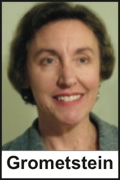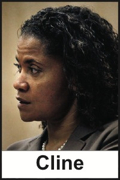Rascals case in brief
In the beginning, in 1989, more than 90 children at the Little Rascals Day Care Center in Edenton, North Carolina, accused a total of 20 adults with 429 instances of sexual abuse over a three-year period. It may have all begun with one parent’s complaint about punishment given her child.
Among the alleged perpetrators: the sheriff and mayor. But prosecutors would charge only Robin Byrum, Darlene Harris, Elizabeth “Betsy” Kelly, Robert “Bob” Kelly, Willard Scott Privott, Shelley Stone and Dawn Wilson – the Edenton 7.
Along with sodomy and beatings, allegations included a baby killed with a handgun, a child being hung upside down from a tree and being set on fire and countless other fantastic incidents involving spaceships, hot air balloons, pirate ships and trained sharks.
By the time prosecutors dropped the last charges in 1997, Little Rascals had become North Carolina’s longest and most costly criminal trial. Prosecutors kept defendants jailed in hopes at least one would turn against their supposed co-conspirators. Remarkably, none did. Another shameful record: Five defendants had to wait longer to face their accusers in court than anyone else in North Carolina history.
Between 1991 and 1997, Ofra Bikel produced three extraordinary episodes on the Little Rascals case for the PBS series “Frontline.” Although “Innocence Lost” did not deter prosecutors, it exposed their tactics and fostered nationwide skepticism and dismay.
With each passing year, the absurdity of the Little Rascals charges has become more obvious. But no admission of error has ever come from prosecutors, police, interviewers or parents. This site is devoted to the issues raised by this case.
On Facebook
Click for earlier Facebook posts archived on this site
Click to go to
Today’s random selection from the Little Rascals Day Care archives….
Click for earlier Facebook posts archived on this site
Click to go to
Today’s random selection from the Little Rascals Day Care archives….
One thing led to another…. boy, did it ever!
 Nov. 16, 2012
Nov. 16, 2012
“In North America in the 1980s, the moral panic about organized child abuse arose in a context that included the following scares:
- “a moral panic about satanic activity;
- “a scare about missing and murdered children;
- “great public anxiety about incest, redefined as child sexual abuse during the 1970s;
- “a wave of disputed custody cases in which women accused their former husbands of sexually abusing children during court-ordered visitations;
- “self-help books by women claiming to be ‘survivors’ of incest and ritual abuse;
- “therapists’ claims that many of their adult women patients suffered from multiple-personality disorder as a result of severe childhood sexual and ritual abuse.
“Of particular importance were claims that society was in denial about widespread child sexual abuse…. Thus, claims about organized child abuse by caregivers were made in a context of claims about similar issues, and the effect of claims in one panic was to reinforce claims in another.”
– From “Wrongful Conviction and the Moral Panic About Organized Child Abuse: National and International Perspectives” by Randall Grometstein (2005)
Tracey Cline, Mike Nifong and H.P. Williams
 March 21, 2012
March 21, 2012
“In July 1993, (Tracey Cline) headed to the state’s northeast corner to work as a prosecutor in a cluster of counties near Elizabeth City. Her stint there was short-lived, just six months, and unremarkable, according to supervisors….
“ ‘I hated to see her leave….’ (former District Attorney H. P.) Williams said. ‘I would have given her a good recommendation.’ ’’
– From the News & Observer of Raleigh, February 19, 2012
Williams may have nothing to say on behalf of the innocent Little Rascals defendants, but he seems ever eager to speak well of Cline and Durham’s other epically unethical DA.
Edenton Seven won’t be snapping selfies at marker ceremony
Dec. 31, 2014
“Dear Mr. Powell:
“At their meeting on December 16, the members of the North Carolina Highway Historical Marker Advisory Committee… voted unanimously not to approve a marker (in Edenton recognizing the Little Rascals Day Care case).
“Your nomination was among 17 on the agenda (only five met with approval)…. In short, the committee felt that the case was too recent – with too many people affected by it living in the area. They felt that much more time needed to pass before the subject could be judged by history and considered for a marker. One suggestion was that it might be considered 25 years after the deaths of those convicted…..”
– From a letter rejecting my application for a “history on a stick” marker for the Little Rascals case
I respect the committee’s reasoning, even though I doubt I’ll be around when it’s ready to reconsider – in what, 2075?
What, no applause from Attorney General Easley?
June 17, 2013
“I don’t know if Bob Kelly and the staff of that now-infamous Edenton day care center abused those children… But I do know, beyond any reasonable doubt, that something is dreadfully wrong in that case, and I applaud the (N.C.) Court of Appeals ruling that ordered a new trial for Kelly and Kathryn Dawn Wilson. Everyone who cares about justice should join in a standing ovation for the court’s common-sense ruling.
“Fat chance of that.
“The prosecution, led by Attorney General Mike Easley, has already begun its campaign to discredit the ruling as a nitpicking exercise that found minor technicalities in the state’s longest and most expensive trial….”
– From “Justice unlikely for Kelly” by News & Observer columnist Dennis Rogers (May 9, 1995)
Easley said he would petition the N.C. Supreme Court to review the cases immediately: “The decision casts no doubt on the credibility of the children or the integrity of the investigation…. In both cases, the facts supporting the convictions were clear and overwhelming. (The appeals court) disregarded these facts and misapplied the law.”
The Wilson Daily Times opined that “Easley’s vow to appeal the overturning is futile, and he knows it. … Easley tried to play tough prosecutor… implying the convictions were thrown out because of technical indiscretions. But he well knows that the errors in the trials were substantial and egregious (and) made a mockery of justice.”
Four months later, when the N.C. Supreme Court upheld the Court of Appeals, Easley had lost his bravado. “All prosecutors know that cases involving children weaken with age,” he said. “A retrial in this matter will be extremely difficult.”











0 CommentsComment on Facebook